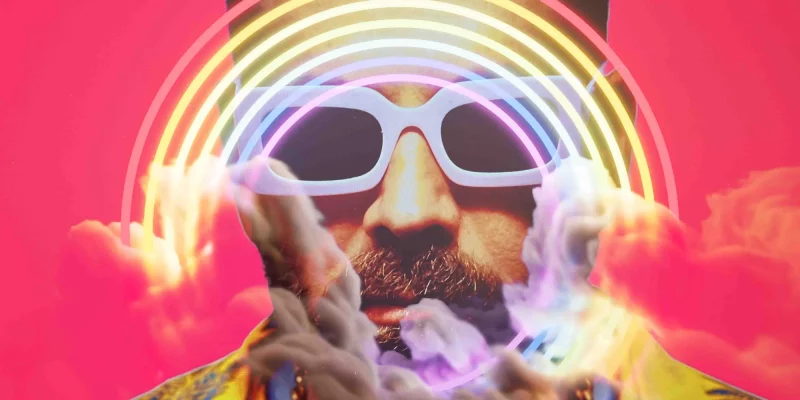To coincide with the release of his single FU & UR Car, we caught up with rapper and artist Miko Malo, to find out more about his journey as a musician, the inspiration for the song, and plenty more. Here’s how it went.
* * * * * * * * * * * * * * * * * * * *
Hi Miko – a real pleasure, thanks for the interview! To introduce things, how would you describe your approach to making music?
It’s very emotionally driven. I write a lot, I write in journals to help with anxiety, I keep voice notes when I’m feeling sad, angry, depressed. It’s like I’m just talking to myself until something I say to myself gives me the chills. Then whatever that emotional feeling is, I try to find the melody that moves me, the beat the makes my head bop without me asking it to.
Tell me about the single FU & Ur Car – how did the track begin, who produced it, and what does it represent for you as an artist?
I have been writing songs since I can remember. I had been sharing them with friends but my singing voice wasn’t what I wanted it to be, so I decided to do spoken word over beats and that’s when one of my producers Matheo Cadena was like … dude … you’re a rapper.
So I wrote FU & Ur Car in twenty
minutes and was ready to publish right away until he was like slow down. Let’s work on this, let’s work on branding, let’s work on marketing. He really made me take everything I made a lot more seriously. If you heard the original cadence of the song, you’d be surprised how much more aggressive it got.
The groove is strong, the flow classic, the details relatable yet also fresh – what’s the response been like so far?
It’s interesting because I feel so new to this, but the groove is what I grew up with. It’s like turn that shit up in the car and let’s go.
Who inspires you as a rapper?
There are so many inspirations. Right now, I really like Snow the Product. She’s so cool in so many ways. Also, any artist that can just share their deepest emotions and not be afraid to express them.
How important is it for you to be open and represent gay artists in the current scene, and how easy or difficult has this been within hip-hop in particular?
It’s very important to be able to represent gay artists. So many stories you hear about kids getting beat or going through emotional abuse at a young age; We have to have the confidence to shine as adults so that we can be a beacon of hope to the young ones who aren’t in a place where it’s as safe to be who you
are as I am.
In what way did summertimes in Mexico highlight the diversity of music and hip-hop for you?
The learning about my own culture through music. The summertimes provided me an escape from the ignorance of some of the suburbs in Los Angeles. As a kid, many times I would have friends tell me horrible things about Mexicans and I would be like … whoa… I’m Mexican, and they would say that’s okay you look white. That really bothered me and my self esteem.
Do you have a longer project in the pipeline, and if so, what can you tell us about that?
Right now I am just working on singles and learning who I am as an artist. Every time, I think I discovered my style, something changes. In March, I thought I had 20 songs ready to go, and as I learn more and more, I am becoming pickier.
What’s your main ambition as an artist?
I just want to have a steady flow of music coming out. I want to get to the point where I don’t have to think about what I am doing and I just do it.
What’s the biggest challenge facing independent artists today, and how can we work to overcome that?
The biggest challenge is themselves. I belong to many forums and groups and people start getting bitter when no one is listening to their music without thinking about their message or how to market that message. It’s okay to ask for help.
Will you be performing live much this year?
I am not ready to perform yet, but when I do there will be spaceships and monkeys everywhere.
Is there anything else we should know?
Be Kind.
* * * * * * * * * * * * * * * * * * *
Find Miko Malo on Instagram & his Website.

